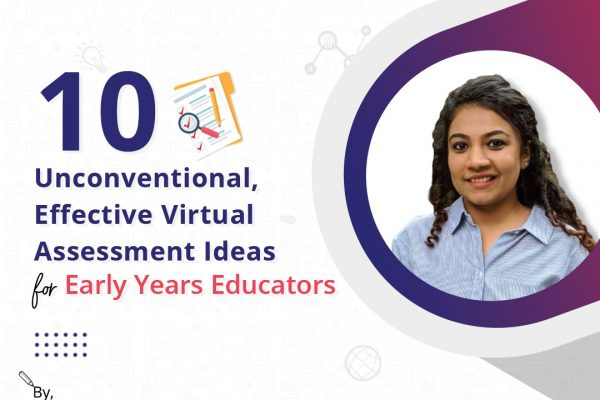


 The gradual ‘normalisation’ of school hours for a large majority of national and international schools has been a welcome sign for the community at large including managements, principals and most of all, the teachers, who now can address the learning lags seamlessly (in-person conclusively aids effective understanding of concepts, even clarifications for what students have not understood) and while some are culminating into physical exams already given its March, some continue to complete their academic targets for they will only end the year in June. Some truths, if we have to be honest and call the elephant in the room is that there is PCH (‘post-covid-hangover’). Last two years of adapting to online teaching has in many cases, for many teachers resulted in continuing on the same path without a course correction. While I am all for technological integration and enabling the tech aspect, there are some concerns as we audit schools. Many are struggling to make it experiential and hands-on. Many have forgotten that while they adapted to online, it is now time to adapt to offline. More learning stations, differentiated assessments, and also more personalised group work, field trips, case studies, hands-on activities, events, circle-time etc. Home-work can involve a lot of innovation (can this be done in school itself?) and don’t forget what PBL can do for these kids. The same for the students, who are struggling to write for longer periods of time, concentrate for longer periods of time given the lack of fitness and exercise that covid lockdown caused. It doesn’t help either party that they need to conform to academic board targets that have done very little to alter the path of transition for these children. While I can understand that international boards must have a universal policy and most countries opened up before we did in India, at least some concessions could have been made for these Indian students? It’s not like this was a storm or the flooding which occurs – this happened to the world after 100 odd years. This was a pandemic and every country had to cope with their challenges. My concern is that the national boards have done nothing to recognise this trauma experienced by children and that they the need to transition slowly. Teachers, on their part have had to simply keep chugging along, and many have expressed fatigue and perhaps that’s the reason why, we see sessions that are simply about ‘delivering’ and ‘finishing’ leaving behind the innovation that could have been possible. In discussion with teachers, and reminding them of the pre-Covid days meets with a bit of resistance for they feel the pressure of parental expectations which always targets ‘performance’ and ‘excellence’. They are very candid when they say, people have forgotten how important life skills are and instead want optimisation of the marks alone! Clearly, we are seeing PCH becoming a major cause of concern and for me, that’s when the management and the school leaders can step up and address their own individual priorities. They need to correct what’s the challenge in their schools and this could be different from someone else’s path. Comparisons do not work, and identifying the gaps and finding solutions is what will work. Point I am trying to make is that before we encounter another ‘loss’, let’s be proactive and preempt. Mental health for me is the greatest rider and nothing we do can be devoid of this even at the risk of academic goals. The recent cases of high school students committing suicide (not all of them are attributed to academic pressure) makes me wonder when we as a nation will start thinking of learning and evolving as opposed to performance alone. Performance comes in phases, and while that is an end goal, we all will need to take baby steps, set short term goals with an eye on the future for foundations are built on socio-emotional security and nothing on earth can overcome the loss of life. As I said, beware of PCH. It is real and threatening. |











